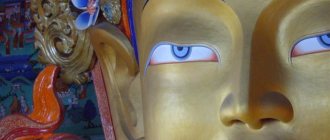Childhood and youth
The founder of logotherapy was born on March 26, 1905 in the capital of Austria-Hungary. Victor Emil was the second of three children in the family of Social Security Ministry official Gabriel Frankl and his wife Elsa. The parents of the psychologist, his older brother and younger sister were Jewish.
Victor’s mother felt the first contractions in the Siller cafe, and Frankl was born and spent his childhood in house 6 on Chernin Street. Across the road, at house 7 on the same street, lived the psychiatrist and philosopher, founder of the Second Viennese School, Alfred Adler.
Embed from Getty Images Viktor Frankl as a child with his brother and sister
Victor recalled his mother as an exceptionally kind-hearted woman, and his father’s main traits were decency and scrupulousness. Gabriel was quick-tempered and once, in a fit of anger, he broke an alpine cane on his youngest son’s back. However, thanks to the man’s justice and his self-confidence, all family members lived in a sense of security.
At the age of 3, Victor wanted to become a doctor. A year later, the boy told his parents that he had figured out how to create medicine. According to 4-year-old Frankl, it was necessary to find people who decided to give up their lives and therefore became ill. The child recommended dosing potential suicides with “drugs” like gasoline and shoe polish. That remedy, after taking which the patient will be cured, is the medicine.
In his adolescence, acting in amateur performances staged by his brother occupied a large place in Victor’s life. Even before graduating from high school, the young man wrote a treatise “The Psychology of Philosophical Thinking.” Frankl received his higher education at the Faculty of Medicine of the University of Vienna. The young doctor's specialization was neurology and psychiatry.
Links[edit]
- ^ abcdefgh Frankl, Victor Emil (August 11, 2000). Memoirs of Viktor Frankl: An Autobiography. Basic books. ISBN 978-0-7382-0355-3.
- ^ abcdefghi Haddon Klingberg (October 16, 2001). When Life Calls to Us: The Love and Life's Work of Viktor and Ellie Frankl. Doubleday. p. 155. ISBN 978-0-385-50036-4.
- Längle, Alfried (2015). From Viktor Frankl's logotherapy to existential analytical psychotherapy; in: European Psychotherapy 2014/2015. Austria: Home of World Psychotherapy
. Serge Soultz, Stefan Hagspiel (eds.). paragraph 67. - ^ ab Redsand, Anna (December 18, 2006). Viktor Frankl: A Life Worth Living. Houghton Mifflin Harcourt. ISBN 978-0-618-72343-0.
- "Viktor Frankl - Life and Work". www.viktorfrankl.org
. Viktor Frankl Institute, Vienna. 2011. Retrieved August 2, 2021. - Schatzmann, Morton (September 5, 1997). "Obituary: Viktor Frankl". Independent (UK)
. - “List of books and articles about Viktor Frankl | Online Research Library: Questia". www.questia.com
. Retrieved April 20, 2021. - ^ ab "Biography of Viktor Frankl". Viktor Frankl Institute, Vienna
. - Batthyány Alexander (ed.) (2016). Logotherapy and existential analysis. Proceedings of the Viktor Frankl Institute, Vienna, Volume 1
. Springer International. pp. 3–6. ISBN 978-3-319-80568-9.CS1 maint: additional text: list of authors (link) - Frankl, Victor E. (Victor Emil), 1905-1997. (2005). Frühe Schriften, 1923-1942
. Vesely-Frankl, Gabriele. Vienna: W. Maudrich. ISBN 3-85175-812-9. OCLC 61029472 .CS1 maint: multiple names: authors list (link) - Jump up
↑ Neugebauer, Wolfgang (2002).
Von der Zwangssterilisierung zur Ermordung. Zur Geschichte der NS-Euthanasie in Wien Teil II
. Vienna / Cologne / Weimar: Böhlau. pp. 99–111. ISBN 978-3205993254. - Bory, George. "Theories of Personality: Viktor Frankl." Shippensburg University. Accessed April 18, 2014
- Lantz, James E. "Family Logotherapy." Contemporary Family Therapy 8, no. 2 (1986): 124-135.
- ^ ab Frankl, Victor (August 10, 2000). Man's search for higher meaning. Pub Perseus. ISBN 978-0-7382-0354-6.
- "The Life of Viktor Frankl". Viktor Frankl Institute of America
. - Frankl, Victor (2010). Feeling of meaninglessness
. Marquette University Press. ISBN 9780874627589. - Jump up
↑ Fein, Esther B. (November 20, 1991).
"New York Times, 11/20/1991". New York Times
. - ^ ab Frankl, Victor (2014). The Will to Meaning: Foundations and Applications of Logotherapy
. New York: Penguin/Plume. ISBN 978-0-14-218126-3. - ^ab "What is logotherapy/existential analysis".
- Frankl, Victor (2019). Doctor and soul. From psychotherapy to logotherapy
. New York: Vintage Books. ISBN 978-0-525-56704-2. - Frankl, Victor E. (1975). "Paradoxical Design and Exposure." Psychotherapy: Theory, Research and Practice
.
12
(3): 226–237. doi:10.1037/h0086434 - via https://doi.org/10.1037/h0086434. - Amelie, M., & Dattilio, F. M. (2013). "Enhancing cognitive behavioral therapy through logotherapy: methods for clinical practice." Psychotherapy
.
50
(3):387–391. DOI: 10.1037/a0033394. PMID 24000857. CS1 maint: multiple names: authors list (link) - V. Frankl Meaning - seeking models and positive psychology Chapter from the book “Meaning in positive and existential psychology” (pp.149-184) accessed May 26, 2020
- Scully, Matthew (1995). "Viktor Frankl at Ninety: An Interview". First things
. Archived from the original on May 1, 2012. - ↑
Noble, Holcomb B. (September 4, 1997).
"Dr. Viktor E. Frankl of Vienna, a psychiatrist dedicated to the search for meaning, dies at age 92". New York Times
. item B-7. Retrieved September 6, 2009.
Personal life
The veil over the secret of gender relations was lifted for the Frankl brothers by the maid, who allowed the teenagers to undress her and touch her body. In high school, Victor thought that once he got married, he would stop sleeping in order to spend all the night hours on the joys of his personal life.
At the end of 1941, the doctor married nurse Tilly Grosser. The woman soon became pregnant, but in a situation of increasing repression against Jews, the couple chose to have an abortion. Tilly, like Victor's parents and brother, did not return from the Nazi concentration camps. Love for his wife and imaginary conversations with her supported Frankl in the most difficult moments of imprisonment. The psychologist's book "The Doctor and the Soul" is dedicated to "dead Tilly."
Embed from Getty Images Tilly Grosser and Viktor Frankl in their youth
In 1947, Victor married Catholic Eleanor Katharina Schwindt, with whom he lived until the end of his life. The couple respected each other's religions, attended church and synagogue together, and celebrated Christmas and Purim.
Victor and Eleanor named their daughter, who later became a child psychologist, Gabrielle in honor of the doctor’s father. Frankl managed to take part in raising his grandchildren Katharina and Alexander and see his great-granddaughter Anna Victoria.
The psychologist loved strong coffee and ties. On all trips I took caffeine tablets in case the cafe couldn’t brew a strong enough drink. Frankl admired ties in store windows, even when he had no intention of buying them.
Victor composed music (elegy and melodies in tango rhythm). The scientist had an excellent understanding of frames (in most photographs the philosopher is depicted wearing glasses), appreciated humor and wordplay, and decorated his lectures with tales and anecdotes.
Bibliography[edit]
His books in English:
- Man in search of meaning.
Introduction to Logotherapy, Beacon Press, Boston, MA, 2006. ISBN 978-0-8070-1427-1 (Originally published 1946) - The Doctor and the Soul,
(originally titled
Ärztliche Seelsorge
), Random House, 1955. - Toward the theory and therapy of mental disorders.
Introduction to Logotherapy and Existential Analysis, translated by James M. DuBois. Brunner-Routledge, London-New York, 2004. ISBN 0-415-95029-5 - Psychotherapy and existentialism.
Selected Papers in Logotherapy, Simon & Schuster, New York, 1967. ISBN 0-671-20056-9 - The will to meaning.
Foundations and Applications of Logotherapy, New American Library, New York, 1988 ISBN 0-452-01034-9 - An inaudible cry for meaning.
Psychotherapy and Humanism, Simon and Schuster, New York, 2011 ISBN 978-1-4516-6438-6 - Memoirs of Viktor Frankl: Autobiography.
; Basic Books, Cambridge, MA, 2000. ISBN 978-0-7382-0355-3. - Man's Search for Ultimate Meaning.
(Revised and expanded edition
of The Unconscious God
with an introduction by Swaney Hunt). Perseus Publishing, New York, 1997; ISBN 0-306-45620-6. Paperback edition: Perseus Book Group; New York, July 2000; ISBN 0-7382-0354-8. - Yes to Life: Against All Odds
Beacon Press, Boston, MA, 2021. ISBN 978-0807005552
Scientific activity
In the 20s of the 20th century, Frankl developed a program for psychological support for students. Since 1933, the young doctor headed the suicide prevention department in one of the clinics in Vienna. Thanks to Frankl's psychological help, about 30 thousand women got rid of thoughts of suicide.
After Hitler's Anschluss of Austria, Jewish doctors were prohibited from treating Aryan patients. In 1938–1939, Frankl was engaged in private practice, and in 1940 he headed the neurological department of the Rothschild Clinic, the only hospital where Jews were allowed to be treated. Victor had to work not only as a psychiatrist, but also as a neurosurgeon.
In 1941, the man was invited to the US consulate and offered an American visa. The doctor refused: he did not want to leave his elderly parents without help. Victor's first place of imprisonment was Theresienstadt in the Czech Republic, where he ended up in the fall of 1942 and where his mother and father were already located.
It was a model camp, which the Nazis called a boarding house for elderly Jews and demonstrated to the Red Cross commission. There was a synagogue in Theresienstadt, and performances and exhibitions were held.
The secret of the Nazis’ “humanism” was simple - prisoners of the “model boarding house” were eventually sent to death camps. This is what happened to Frankl’s mother, who died in Auschwitz. In October 1944, Victor was also sent to Auschwitz, but a week later he was transferred to Türheim, one of the camps in the Dachau system.
Embed from Getty Images Viktor Frankl and wife Eleanor
In all places of detention, the prisoner, along with other prisoners, performed hard physical work, in particular laying rails. But in the evenings the doctor healed the souls of his fellow sufferers, helped them find the answer to the question of what was the meaning of their lives now, and gave lectures on mountaineering and psychology.
The doctor taught the prisoners the method of auto-training - they imagined how they would pass all the tests and be reunited with their families. From his own experience and the experience of other prisoners, Frankl came to the conclusion that the “will to meaning” is the “subconscious god” of every person, helping him to live and maintain dignity. Victor outlined this theory in the book “Man’s Search for Meaning” and other works.
On April 27, 1945, Frankl and other surviving prisoners of Türheim were liberated by US troops. Already in 1946, the scientist expressed the idea of reconciliation. The psychologist rejected the theory of collective responsibility of the German people for Nazism. According to Frankl’s memoirs, among the camp guards, in addition to sadists and indifferent performers, there were saboteurs of criminal orders who tried to make life easier for the prisoners.
From 1946 to 1971, Victor headed the Vienna Psychotherapeutic Clinic. Among the methods of psychotherapy developed by Frankl are the reverse treatment (patients who quickly forget information were asked to become world champions in forgetting, and their memory improved) and logotherapy (patients were told that they were smarter, calmer, more efficient than they were). in fact, and gradually people became better).
DEUTSCH-RUSSISCHES INSTITUT FÜR LOGOTHERAPIE UND EXISTENZANALYSE NACH VIKTOR FRANKL (FIL)
Viktor Frankl was born in Vienna, into a middle-income Jewish family. His mother, which he always mentioned with pride, was descended from one of the famous Hasidic sages, Rabbi Loew of Prague. The social and economic position of the family was unstable, and even at the end of his life, despite the enormous worldwide fame that came to him and his extraordinary ambition, he retained a feeling of insecurity in communicating with the aristocracy, the authorities, and the powers that be.
Relations with parents were very positive. Frankl described his mother as the embodiment of goodness, a very warm-hearted, emotional woman. His father was for him an example of righteousness, a strict, collected man, Spartan in his life style, economical, although not stingy, distinguished by a very strong sense of duty, strong, firm principles, even to the point of some pedantry and stubbornness. Victor always felt great love and affection for his father. My father, like my mother, was very religious, maintaining a serious, but critical, reformist attitude towards the commandments. Frankl's character reflected the traits of his parents: from his father - stubbornness, integrity, deep religiosity, stoicism and perfectionism, from his mother - a positive attitude of sympathy for people.
Victor's childhood was very prosperous, he felt care, support, protection and at the same time freedom. The family had two sons and one daughter. Apart from Victor, only his younger sister survived the Second World War, who was far from the spiritual interests of her brother, who even before the war went to Mexico, then to Australia, and lived to a ripe old age. Victor's older brother, like their parents, died in a concentration camp.
Frankl was a deeply religious man; it was a personal relationship with God that had nothing to do with confessional religiosity; He later defined God as the most intimate interlocutor in your internal dialogues. Largely, probably, thanks to his religiosity, he became interested in socialism in his youth and became one of the prominent functionaries of the socialist union of high school students in Austria. He classified political parties, figures, and programs solely according to the ethical criterion: does the end of a given politician justify the means, or are there unacceptable means for him to achieve any goal?
Quite early, from the age of three, Viktor Frankl had a desire to become a doctor. Around the same time, the realization of the fact of mortality came to him: at the age of four, he realized that he would someday die. The main question that worried him in his youth was whether the fact that everyone is mortal leads to the conclusion that life has no meaning? It was not the fear of death, but the painful problem of the finitude of life - what follows from this, and what impact it has on life. Thus, his interest in spiritual issues and meaning began to take shape in his early years. Another episode from the lower grades of the gymnasium: the natural history teacher, describing the life of different organisms and humans, said that life ultimately is nothing more than a process of oxidation. Frankl jumped up from his seat and asked: “Then what kind of life has meaning?” He often recalled this episode as one of the first manifestations of his interest in meaning.
From his high school days, Frankl was distinguished by his desire for knowledge, he asked a lot of questions, and saw the strength of his intellectual style not so much in the creative creation and inventing of something new, but in the fact that he consistently thought through and brought his thoughts to completion. He had broad interests, he studied well, attended open public lectures at the so-called “people's school,” and was interested in philosophy, psychology, and politics. During this period, he had alternatives in his spiritual quest, he participated in discussions on current political, psychological, social, medical, philosophical and other topics, without avoiding what he later designated as the temptation of psychologism, as well as sociologism. Psychologism reduces all human behavior to internal conflicts and satisfaction of drives, and sociologism reduces all human behavior to a response to social relations.
The most powerful of these temptations was psychoanalysis, which in the late 1910s and early 1920s. was in its prime and, naturally, young Frankl could not pass him by. For some time, faith in God faded into the background and he began to lean towards nihilism in relation to religious values; faith in science came, revolutionary faith in political activity, characteristic of the age of “storm and stress”. The political atmosphere also contributed to this: dramatic changes came that resonated with the political and social views of the young Frankl. Belonging to the circle of Adler, who was then married to a Russian, constantly communicated with a circle of Russian political emigrants, sympathized with the revolution and was an admirer of Trotsky, who lived in Vienna from 1901 to 1917, also had a certain influence on his general understanding of the world.
It was largely under the influence of psychoanalysis that Frankl decided to become a psychiatrist. He had no doubts about a medical career, but there was a question of choosing a specialty. Ultimately he chose psychiatry. This was partly due to his desire to influence others. He then had a great interest in hypnosis, already at the age of 15 he mastered it and knew how to professionally and competently hypnotize people. Frankl wrote and published a very good, but not original, psychoanalytic article in the International Journal of Psychoanalysis [3]. However, the fascination with psychoanalysis in the orthodox version did not last long.
After passing his Abitur examination, Frankl wanted to obtain psychoanalytic training by undergoing his own psychoanalysis, which was a necessary step to work as a psychoanalyst. He wrote a letter to Freud asking him about this educational analysis. Freud responded by sending him to his student and at that time secretary of the society Paul Federn (this exchange of letters was the only communication between Freud and Frankl; they never met in person). Frankl arranged a meeting with Federn and came to him. After several minutes of silence, he asked: “So, Mr. Frankl, what is your neurosis?” Frankl was slightly taken aback and began to say something about the anal character and anxious-obsessive traits. After about a quarter of an hour, Federn ended the conversation and advised him to first wait until the end of his studies, because study and analysis can interfere with each other, and then agree on analysis. After communicating with Federn, two points that repelled him from psychoanalysis became completely clear to Frankl. Frankl experienced, upon meeting Federn, something that he would later fight against all his life, namely, double reductionism. Firstly, this is a truncation of the human dimension in a person - no greeting, apology, explanation, no introductory words, understanding, and even a handshake when parting. Secondly, this is pathology - the essence of a person is seen in his neurosis, defenses and repressions; the person is considered sick in advance. Thinking about this, Frankl came to abandon his idea of doing psychoanalysis and join the psychoanalytic society. In the next week he moved to the group of Adler, the founder of the second Viennese school of psychotherapy.
His political convictions also connected him with Adler: he was a Social Democrat, worked a lot primarily with clients from the lower, disadvantaged strata, creating a network of medical and pedagogical consultations in Vienna. In 1925, Frankl passed theoretical exams at the Vienna section of the International Union of Individual Psychology, received a diploma and was accepted into the circle of adherents of “individual psychology.” Here he found teachers who had a very great influence on him both as individuals and as professionals - Rudolf Allers and Oswald Schwarz.
However, being in this community was also very difficult, and young Frankl’s relationship with it took a complex and dramatic form. Disagreements arose between Frankl's teachers Allers and Schwartz on the one hand, and Adler on the other, which ultimately led to the expulsion of Allers and Schwartz from the International Union of Individual Psychology in 1927. This union had a rigid hierarchical structure, and its ordinary members, like the young Frankl, according to existing rules, could not communicate with Adler on scientific issues personally, but only through their teachers. When Allers and Schwartz, who introduced Frankl into the Adlerian society, were expelled from the union, Frankl found himself in complete isolation, and was soon excluded from all forums of the union of individual psychology and found himself outside of it. At the same time, his communication with his teachers was interrupted and in the late 1920s. he was left virtually alone.
Frankl never considered himself a student of Adler, saying that he generally lacked the organ of perception of philosophical problems: Adler from the very beginning proceeded from the dogma that life has meaning, and that it is wrong to specifically ask this question. Adler as a person did not make a very strong impression on Frankl, although Frankl never directly assessed Adler from this side. In scientific terms, Frankl valued Adler very highly, seeing in him the forerunner of humanistic psychology. In particular, Frankl described as a Copernican revolution the idea of goal determination, orientation to meaning, first introduced into psychology by Adler, as opposed to the Freudian causal explanation, based on the past, of causal cause-and-effect relationships [7]. Adler was truly the first in personality psychology to replace the Freudian question “why?” asked the question “why?” Frankl developed precisely this line, inheriting from Adler some of the most fundamental aspects of his approach. He often quoted Adler, in particular he really liked the statement: “it is not true that a person has experience, experience is a person.”
In addition to the constant threat to his life, free expression was no longer possible, and Frankl began trying to obtain a visa to leave for the United States. For a long time his efforts remained fruitless. In 1940, he was made head of the neurological department of the Rothschild Jewish Hospital. This position provided work and gave relative protection from deportation to a concentration camp; in addition, he was able, with the help of his colleagues, to save quite a few patients from death as inferior. He also developed a number of purely medical, neurological methods of helping people with unsuccessful suicide attempts, but which led to quite severe damage. By giving certain intravenous injections, he brought people close to death back to life within two days.
At the end of 1941, a turning point arose again in Frankl’s life when the American consulate issued him a long-awaited entry visa. The problem was with his parents, who did not have one: for them there was only one real road left - to the concentration camp. Frankl was at a crossroads: either say goodbye to his parents and leave them to fate, or put his life, future, and work on the line for the vague prospect of somehow helping and protecting his parents. For a long time he could not make a decision: on the one hand, his parents, whom he dearly loved, turned out to be defenseless, on the other hand, the prospect of protecting them if he stayed was still very weak and unobvious. This question tormented him for many weeks. One day, being in this state of openness to any metaphysical signs, Frankl returned home after a walk and saw on the table a piece of marble with one Hebrew letter on it. The father explained that it was a piece of marble from the ruins of a synagogue recently destroyed by the Nazis, part of one of the commandments that was carved on it. “What commandment is this?” — Frankl asked his father excitedly. “Honor your father and your mother and you will remain in peace and quiet.” At that moment, Frankl made his decision to stay in Vienna, and his visa disappeared. Then, in December 1941, Frankl did another amazing thing for those times - he married a nurse from another department of his hospital, Tilly, and this was the last Jewish wedding in Vienna during this period.
Expecting from day to day to be deported to a concentration camp with his parents, Frankl wrote the book “Healing the Soul,” the first version of his main work. He assumed that even if it did not survive, at least his book had a chance to survive. Despite all the tragic circumstances, his life acquired a certain meaning and structure. After some time, the hospital where he worked was closed, and in September 1942, Frankl and his entire family were sent to a concentration camp. The only thing he took with him was the manuscript of the book, sewn into the lining of his coat, in the hope of somehow preserving it.
Until October 1944, he was in the Theresienstadt camp, 70 km north of Prague, in the Czech Republic. This camp was relatively mild compared to others; it was then called a “model ghetto.” There were no gas chambers, people were sent to other concentration camps to die, and prisoners there had the opportunity to sometimes communicate with each other.
In Theresienstadt he lost both his parents. The father lived for several months, weakened from hunger and pneumonia. Frankl described in detail the separation from him. They were in the same camp, but in different barracks; The camp regime allowed them to see each other at certain hours during the day, and at night they went to their own places. My father was already over 80, he was very ill, he was dying, and Frankl, as a doctor, knew that he had only a few hours left to live. Victor somehow managed to obtain an ampoule of morphine and gave his father an injection to ease his pain. After that, he asked him three last questions: “Are you still in pain?” “No,” answered the father. - Do you want anything? - No. - Do you want to say anything? - No. “After that, Victor kissed his father and left, knowing that the next morning he would not find him alive. He was always proud of this, said that he had some kind of amazing feeling of a man who had fulfilled his duty - he made the last hours of his father’s life easier, relieved him of pain, helped him pass away in peace and quiet. This story of Frankl's farewell to his father illustrates one of the central tenets of Frankl's scientific concept: the importance of a person doing something unique in the world. It was no coincidence that he experienced a feeling that seemed incompatible with the situation of the death of his beloved father: the meaning of the fact that he stayed in Vienna and did not go to America was realized, which means it was not in vain. Frankl's mother died in a gas chamber much later, in October 1944, when Frankl himself and his wife were sent to Auschwitz.
This is far from the only one of the most important existential experiences that entered Frankl’s life in the concentration camp. Perhaps the most striking thing was the following. One day, during an evening formation, Frankl was assigned to a train that carried a certain number of prisoners to the gas chambers every morning. None of those sent on this morning train ever returned. The choice was small: either throw yourself onto the live wire that fenced the camp and commit suicide, or try to fight, use your last chances. Frankl said goodbye to his mother, then to his wife, after which he had to go to his sector. As he walked there, looking at the sunset, he realized that he had done everything he could do in his life, and for the first time he felt that he no longer had any obligations, no need to make decisions. He is free from everything, from debt, from worries, and the gloomy feeling has been replaced by a feeling of lightness that he did not know before. His life was already over, and he found himself in the position of an observer who calmly, impartially looks at what will happen next, what life will bring - nothing depends on him.
It is difficult to describe, let alone understand, what deep emotions these thoughts caused, this awareness - a feeling of happiness, gratitude, joy and satisfaction with a completed and fulfilled life, a feeling of connectedness with everything in the world, with everything that exists, with oneself and the world... On the way to the barracks When Frankl said goodbye to his life, there was absolutely no need for him to kill himself. He became interested in what else life could offer him, he felt himself in the position of a spectator in a movie, who is interested in how the film will end.
This position, defined by his concept of self-distancing, or self-detachment, as one of the basic characteristics of a person, took on a very intense form at that moment, allowing him to go beyond himself, his own life and look at everything from the outside. Nothing, Frankl thought, had been proven at that moment, because until the train arrived and took me to the gas chamber, life was open to everything, even the most incredible and impossible. Life retains its openness, there is no longer anything predetermined in it - even when one cannot hope, there is always some hope despite any hopelessness, even the most impossible can sometimes turn out to be possible. The last dignity of a person is to wait for what life will reveal to you now, to be open to these possibilities, not to exclude any of them, to accept and allow any. You need to overcome that peculiar pride, as if you know in advance how everything will end. This is wrong: you can’t be so sure and know exactly how everything will end, we’ll see what else happens. After all, no one can guarantee you one hundred percent that you will die. If so, then it is your personal responsibility to be open to all possibilities that may arise. Maybe the train will be blown up, or perhaps it will go somewhere else where there are no gas chambers.
Pessimism, Frankl thought, is not the same as passivity; on the contrary, it is activity that gives rise to pessimism. If in the 19th century optimism was necessary to promote progress, now you need to be a pessimist, but active, doing everything you can. Later [11, p. 83-84] Frankl defined his worldview as tragic optimism, which is expressed by the formula: things are bad, but if we don’t do everything we can, they will get even worse, so a lot depends on us. Frankl said that this attitude corresponds to Karl Popper's methodology of science, his principle of falsification, according to which a scientific theory is considered true until it is disproved. Our ideas about life, also, in accordance with this general principle, should be considered true until life itself refutes them. In 1943, Frankl called the position he formulated for heuristic optimism: no one can prove to me and completely guarantee that I will die tomorrow in a gas chamber, so there is a chance, and I must at least do everything not to reduce this chance.
The next morning the train did not arrive. This was the only case in the entire history of the camp, its reasons are unknown.
In October 1944, Frankl was sent to Auschwitz, better known in our country under the Polish name Auschwitz. It was one of the most terrible camps: in it the gas chambers worked without interruption. Frankl's wife also got into this transport - voluntarily. At Auschwitz they were separated forever. Then he found out that she died in 1945 after the British released the prisoners - she was in such a state that she did not live long. Quite soon, Frankl was transferred to the new camp Kaufering III, a branch of Dachau. It was a little easier there than in Auschwitz, but more than once Frankl literally miraculously escaped death. Once, when he was already on the list to be sent to the gas chamber, he was crossed out by the chief doctor of the concentration camp, who needed him as an assistant, and he was actually able to apply his medical skills in this camp, saving a number of people from death. Another time, 100 people were to be sent to the gas chambers, and Frankl was the hundredth in this group. Another miracle happened: the warden, a Viennese gangster, who had a score to settle with one of the prisoners, provoked a conflict with him and pushed him into this group, bringing him back to the hundredth so that the numbers would converge. Immediately upon arrival at Kaufering III, Frankl was in very bad condition, and his life was saved by the fact that one of the prisoners turned out to be a passionate smoker and on the very first day he exchanged a bowl of soup for cigarettes. This bowl of soup may have saved his life once again.
Frankl's last camp was another Dachau branch, Türkheim. Here he fell ill with some kind of infectious disease, a type of fever, and was close to death. For many months, his main thought was to preserve the book so that it would survive him and still come out. Remembering Abraham, who was willing to sacrifice his only child, he realized that he must sacrifice his spiritual child, the book, and tried to give up his desire to keep it. What kind of life is this, he thought, the whole point of which is only whether the book will come out or not. Frankl decided to sacrifice the manuscript if he could somehow save himself. He was already falling into a twilight state, and in order to keep his consciousness and spirit awake, at that moment, in clear contradiction with the rational decision, the vow made and the refusal of the book, he began to sketch shorthand characters on a piece of paper - a project for revising the book for a new edition. It was a victory of the emotional, irrational, unreasonable principle over reason, which saved his life. Frankl dealt with the fever, overcame the fever and recovered.
In 1945, after being released from the camp, he returned back to Vienna and discovered that the world in which he lived had become completely different. The next difficult period of his life began. In the very first days, he learned about the death of his wife and brother, not to mention many friends and acquaintances. In 1945, Frankl was made the chief physician of the neurological dispensary of the Vienna Polyclinic, a multidisciplinary hospital, where he worked in this position for 25 years, until his retirement. Colleagues helped him prepare a new version of the book “Healing the Soul,” which was lost in a concentration camp, and all this activity was for Frankl then the only thing that meant anything to him - he was completely immersed in this work. He had to overcome a difficult period of depression, doubt, loneliness, weakness.
Over the course of 4-5 years, he wrote and published several books in a row, which outlined the foundations of his teaching, and almost until his death, for 40 years, his views no longer underwent fundamental changes and development. He dictated a book about the concentration camp in 9 days. It was originally published under the title “A Psychologist Survives a Concentration Camp” anonymously, without identifying the author, since Frankl believed that in this case it was not the authorship that was important, but the living testimony. The theoretical book “Healing the Soul,” especially in the last year of his stay in the concentration camp, gave the main meaning to his desire to survive, helped him endure all the hardships of camp life, and the task of restoring and reconstructing the book at a new stage gave him meaning to live on. This work [9] became his dissertation. Like the concentration camp book, it was published in 1946 and sold out three days after its release. The next edition sold out in three weeks. Despite the paper shortage, the third edition was published already in 1946, the fourth in 1947, etc. In 1946, the book was published in the USA, but then it went almost unnoticed.
The book about the concentration camp sold out more slowly. For the second edition, Frankl decided to put his name on the title page [5]. Real success awaited her later, when in 1959, on the recommendation and with a foreword by the authoritative Gordon Allport, this book was translated into English and published in the USA under the title “From the Death Camp to Existentialism” [6]. It was a resounding success - according to 1995, the total circulation of the English edition alone, not counting translations into 25 languages, exceeded 9 million copies. It continues to be published to this day, and was recently named by the Library of Congress as one of the 10 books that have had the greatest influence on Americans, according to a special survey. Since 1962, the English edition has been published under the title “Man’s Search for Meaning,” which also includes a brief summary of the basics of logotherapy [10]. The German version of this book, recently released in Russian translation, now bears the title “And Still Say Yes to Life”; It also includes Frankl's philosophical play Synchronization at Birkenwald, which features prisoners and guards at a concentration camp, as well as Socrates, Spinoza, and Kant arguing about human nature.[2]
These books immediately received very active recognition and support from public opinion. Frankl's book about the concentration camp was highly praised by Karl Jaspers, according to whom it is a document that belongs to the few great books of mankind. The book was also highly praised by Martin Heidegger, who considered it the best that Frankl wrote. Gabriel Marcel contributed to the French edition and wrote the foreword. In this book, for Frankl, camp life itself, all its circumstances recede into the background, the series of events plays a rather secondary role. The book does not accuse, does not call for anything, it is focused on the problem of experiencing and coping with the unbearable, it shows what a person is capable of, including in situations of impossibility, when, it would seem, nothing can be done. The book is dedicated to what Frankl later called “resistance of spirit” - the spiritual strength that allows you to find meaning, gain your responsibility and exercise your freedom within certain limits. This book is evidence of what a person is generally capable of even in the most unfavorable conditions, what suffering he can endure while remaining himself.
One of the social problems Frankl had to face was the collective guilt of the German people, and in this case the people of Austria as Germany's ally, for what happened. This problem turned out to be very acute after the war. The dominant public opinion was the recognition of the collective guilt of the entire people. Frankl, as is his wont, went against the grain. He did not recognize such a thing as collective guilt; guilt can only be individual, only personal.
As a person who enjoyed very great authority in the country, Frankl acted as a lawyer for those who served Nazism, but managed to remain a decent person. He said that there could be worthy and unworthy people on each side, and that if a particular person did good deeds, this would justify him, despite the fact that he wore the SS uniform. Frankl approached a person individually, taking into account personal responsibility and merit. In the first post-war years, he spent a lot of effort on restoring justice, even hiding in his apartment a fellow psychiatrist who was wanted by the state police on unjust charges. For the same reason, he quarreled with the leadership of the union of concentration camp prisoners, in which he immediately took a prominent position.
In the 1950s the stage of international recognition of Frankl began. Already at the end of 1946, he made a report in the French occupation zone at a Franco-Austrian university meeting. He was the first Austrian who was allowed to travel abroad after the war - to report to a congress in Zurich. Frankl, in addition to his professorial work, gave many lectures, made reports, headed the department of the Vienna clinic, and in 1949 received a second doctorate, in philosophy. He considered this necessary because his interests became more and more connected with spiritual and humanitarian issues. As a dissertation in philosophy, he defended his new book “The Subconscious God,” dedicated to the relationship between psychotherapy and religion, a person’s conscience, and his subconscious spirituality [11]. But Frankl was somewhat ironic about his Ph.D., even though it allowed him to justify his right to speak on philosophical issues. With his characteristic humor, he said in his speeches: “Ladies and gentlemen, I have not only a medical, but also a philosophical doctorate, but this gives me little joy. As far as I know my Viennese colleagues, no one will say that Frankl is a doctor twice; on the contrary, they will say that he is only half a doctor.”
Frankl successfully integrated into his new life; in 1947 he married again, again to his clinic nurse Eleanor, and lived happily with her until the end of his life. In 1949, his only daughter Gabriela was born.
At the end of the 40s. A number of his books are being published. In 1954, Frankl was invited abroad for the first time, to Argentina, with a series of lectures on logotherapy. As a result of this long trip, the world's first logotherapy society was founded. Then her triumphant march on the international stage began. The breakthrough was largely due to his fame in the United States, and was facilitated by his former teacher Rudolf Allers, who emigrated from the Nazis to America; After the war, Frankl sent him all his publications with gratitude and respect. Allers did not react in any way, did not answer, but gave his work to Gordon Allport, who read German fluently and since the early 50s. pointed out the important prospects of existentialism for personality psychology. Allport showed great interest in Frankl's work, contributed to the publication of the English edition of the book about the concentration camp, wrote a preface to it, and in 1961 invited Frankl to Harvard University as a visiting professor. Frankl's lectures were very successful, and non-stop lecture activity began all over the world. Only in the USA in the 60s. He traveled about 100 times, traveled around the world 4 times, and in total, outside Europe alone, he gave lectures at more than 200 universities. At this time, he made acquaintance with the powers that be, he was invited by political and religious leaders. The most significant for him was a large audience with Pope Paul VI at his personal invitation during Frankl’s visit to lecture in Rome. Frankl stayed at the house of Eisenhower's widow, many presidents and politicians also sought meetings with him, and his last public appearance, shortly before his death, was at a specially organized meeting with Hillary Clinton, who had arrived in Vienna.
In 1970, Frankl first received the personal honorary title of Professor of Logotherapy at the University of San Diego in California, and it is no coincidence that the First World Congress on Logotherapy was held there in 1981. Theses and dissertations on logotherapy began to be defended, the first of which, “Logotherapy as a Theory of Personality,” was defended by Elisabeth Lucas in 1970 in Vienna. At the end of the 1970s. Frankl's performances in Vienna again caused a great stir among young people: 4,000 people gathered in an auditorium designed for 800. In Venezuela, in Caracas, the Institute of Philosophical Anthropology was named after him; Societies and institutes of logotherapy began to be created everywhere, one of the most important was in Berkeley, in California, where an international journal on logotherapy is published. Among his trips, as he himself noted, visits to communist countries - Czechoslovakia, Poland and the USSR - were especially important for him.
In total, after the war, Frankl published 31 books and about 400 articles, his works were translated into a total of 25 languages; by 1995, they counted 131 books on logotherapy by other authors, 151 dissertations and theses, and more than 1,300 articles. Frankl received honorary doctorates from 28 universities, placing him first in the world among psychiatrists and psychotherapists in this regard.
1. Frankl V. Man in search of meaning / ed. L.Ya. Gozmana, D.A. Leontyev. M.: Progress, 1990.
2. Frankl V. Say “yes” to life / ed. D.A. Leontyev. M.: Smysl, 2004.
3. Frankl V. E. Zur mimischen Bejahung und Verneinung // Internationale Zeitschrift fur Psychoanalyse, 1924. Bd. 10.
4. Frankl V. Zur geistigen Problematik der Psychotherapie // Zentralblatt der Psychotherapie, 1938, 10, S. 33-45.
5. Frankl V. E. Ein Psychologe erlebt das Konzentrationslager. Wien: Verlag fur Jugend und Volk, 1946.
6. Frankl VE From death-camp to existentialism. Boston, Beacon, 1959.
7. Frankl VE Fore-runner of existential psychology (Tributes to A.Adler on his 100th birthday) // Journal of Individual Psychology, 1970, v. 26, #1, P. 10.
8. Frankl VE Eine autobiographische Skizze // Frankl VE Die Sinnfrage in der Psychotherapy. Munchen: Piper, 1981. – S. 143-172. 9.Frankl V. Artzliche Seelsorge. Wien: Deuticke, 1982.
10. Frankl V. E. Man's Search for Meaning. 3 ed., gev. and enl. NY, Simon and Schuster, 1984
11. Frankl V. E. The unconscious God. NY: Washington Square Press, 1985
12. Langle A. Viktor Frankl: Ein Portrat. Munich; Zurich: Piper, 1998
Death
Frankl died on September 2, 1997. The cause of the scientist's death was heart failure. The grave of the founder of humanistic psychology is located in the Old Jewish section of the Central Cemetery in Vienna.
Embed from Getty Images Viktor Frankl in recent years
The Viktor Frankl Museum opened in the Austrian capital on the day of the scientist’s 110th birthday. In February 2021, the psychologist’s portrait was engraved on a €50 commemorative coin issued in the “Viennese Schools in Psychology” series.
In 2015, the film “Viktor Frankl. “Say “Yes” to life!” In August 2018, for the world congress on logotherapy, held in Moscow, a 3-minute cartoon was filmed about the biography and teachings of a former prisoner of Auschwitz. The creators of the film were inspired by Frankl’s book “Say Yes to Life!” Psychologist in a concentration camp."
Time in the concentration camp
In 1942, a wave of mass arrests of Jews swept across Austria. Frankl's family was deported to the Theresienstadt camp near Prague. They, along with other prisoners, were placed in a cramped barn and forced to sit on the cold ground. On the first day, Victor was separated from his family, and he never saw them again.
During the war years, Frankl changed four concentration camps. Despite the loss of his family, he was able to find a new meaning in life. In the concentration camp, Victor not only survived himself, but as a psychologist observed other prisoners and supported them morally. Then this became the only meaning of life for himself. He managed to prevent several dozen suicides of other prisoners.
Quotes
- “In the end, God, if he exists, cares more whether you are a good person than whether you believe in him or not.”
- “If you are asked about something, you should answer as truthfully as possible, but about what is not asked, it is better to remain silent.”
- “No one has the right to commit lawlessness, even those who suffered from lawlessness, and suffered very cruelly.”
- “Happiness is like a butterfly - the more you catch it, the more it slips away. But if you shift your attention to other things, it will come and sit quietly on your shoulder.”
- “The most difficult situation is precisely what gives a person the opportunity to internally rise above himself.”











